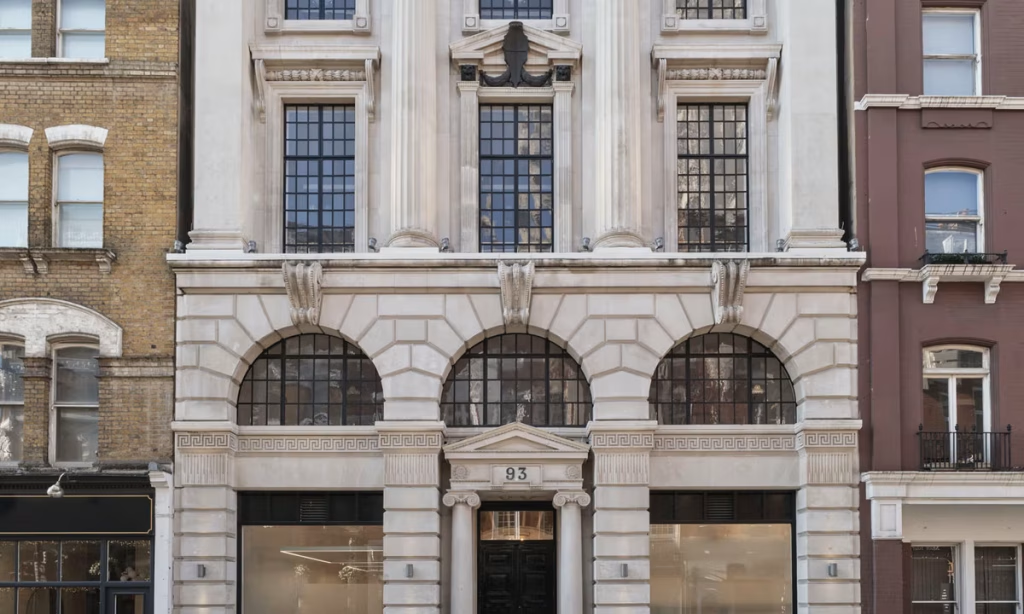The first thing that hits you is the smell of the jute sacking arrayed on either side of the vast ballroom at 93 Mortimer Street in the heart of London’s Fitzrovia. This is Ibrahim Mahama’s Parliament of Ghosts, an installation that fills the room with colonial furniture, cushions and plinths evoking the artist’s native Ghana and its past.
The installation is the first to be shown in a new cultural centre in London, due to open on 15 October. It is housed across six floors of a historic Grade II-listed mansion that has previously served as a synagogue, a cultural centre and even a Galvanic Hospital. Now it is home to Ibraaz—a multi-disciplinary art space entirely funded by the Kamel Lazaar Foundation, a philanthropic organisation founded by the Swiss-Tunisian investment banker Kamel Lazaar. The founder of the space and vice-president of the foundation is his daughter, the dynamic Lina Lazaar, who studied at the London School of Economics, worked as a specialist for Sotheby’s and lived in Saudi Arabia, where she founded Jeddah Art Week. She relocated to London in 2021.
‘Difficult conversations’
“The space is born out of a conviction that freedom of expression is increasingly under threat everywhere,” she says. “That makes it all the more urgent for private institutions to take responsibility for creating environments where difficult and necessary conversations can take place openly.”
Installation view of Ibrahim Mahama’s Parliament of Ghosts at the Whitworth Art Gallery, Manchester in 2019
© Ibrahim Mahama. Photo © Michael Pollard
Ibraaz means “to shine a light on” in Arabic, and the space will host events from talks and performances to film screenings and art exhibitions.
“We are expanding into London’s diasporic community and the wider global majority, from a North African, Arab and Muslim-adjacent position,” Lazaar says. “The aim is to build on shared histories and future affinities—creating a space that is hospitable, warm and open, but also courageous in facing urgent questions. The idea of courage is very important in our editorial line and programming vision. So we will develop visual exhibitions, music programming and literary events articulated around these ideas.”
The building comprises a bookshop, a café, a huge screening room in the basement and a “library in residence” created by the Otolith Group, as well as spaces for discussions and reflection. A separate but connected building may also be brought into service in the future.
Ibraaz was launched after the start of the Arab Spring—“a time when everything felt possible, when new horizons were opening and voices long silenced found resonance,” Lazaar says. Initially purely a digital venture, the new home is its first permanent physical space. “We are seeking to create a pause, a space for encounter, for imagining futures that resist both despair and haste,” Lazaar says.
The Mahama installation—an evolving work that was shown at the Manchester International Festival in 2019—will remain in place until February 2026, when it will be replaced by another, yet to be announced.
“There’s so much that we don’t know and won’t know until we open our doors,” Lazaar says. “This is why the launch is very exciting, because I think it’s going to allow us to be in conversation with many protagonists, stakeholders, collectives, other philanthropic organisations that are doing amazing work. I see this space as being a connection between the cultures here and cultures from other regions.”
- Ibraaz, London, is due to open on 15 October
